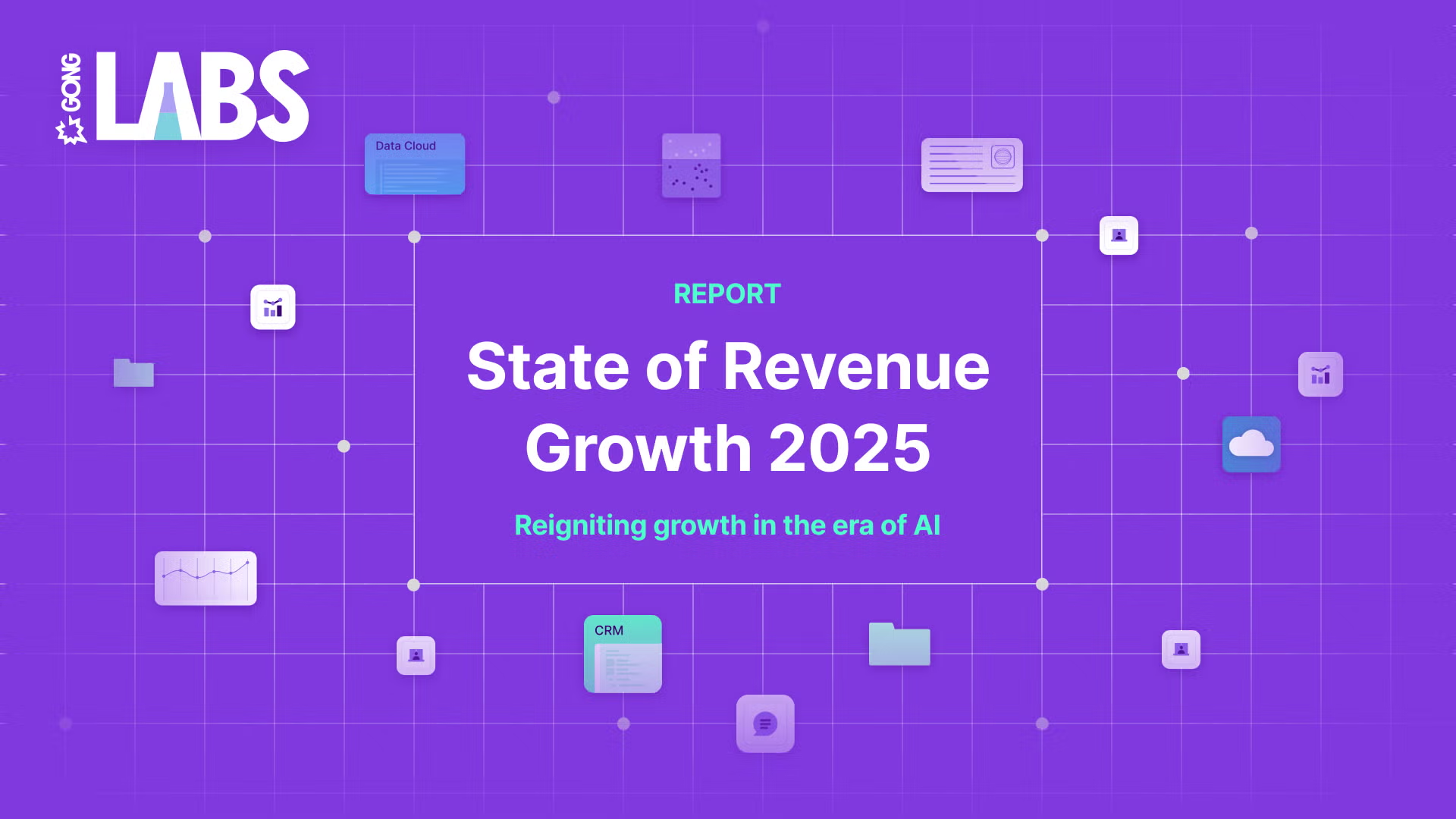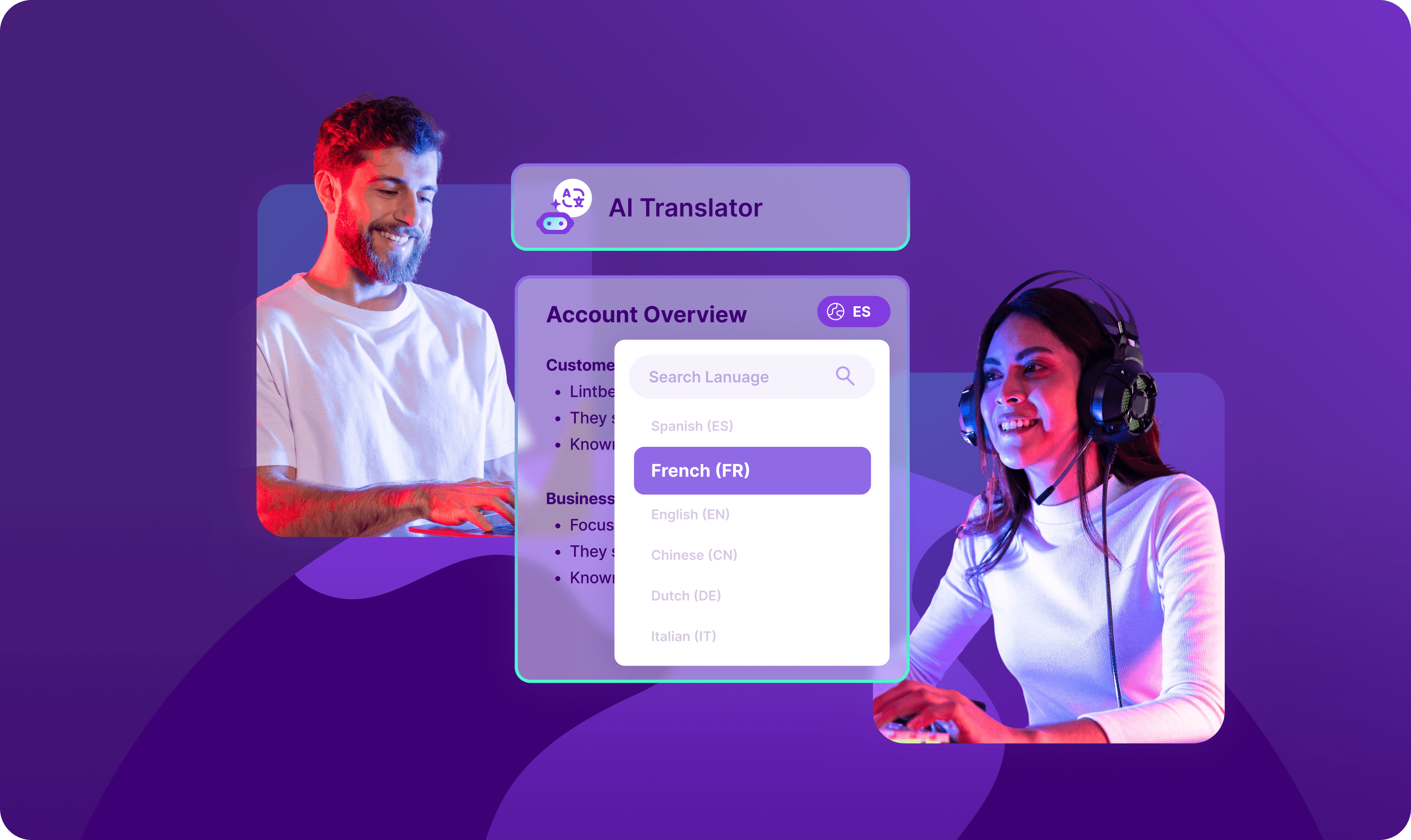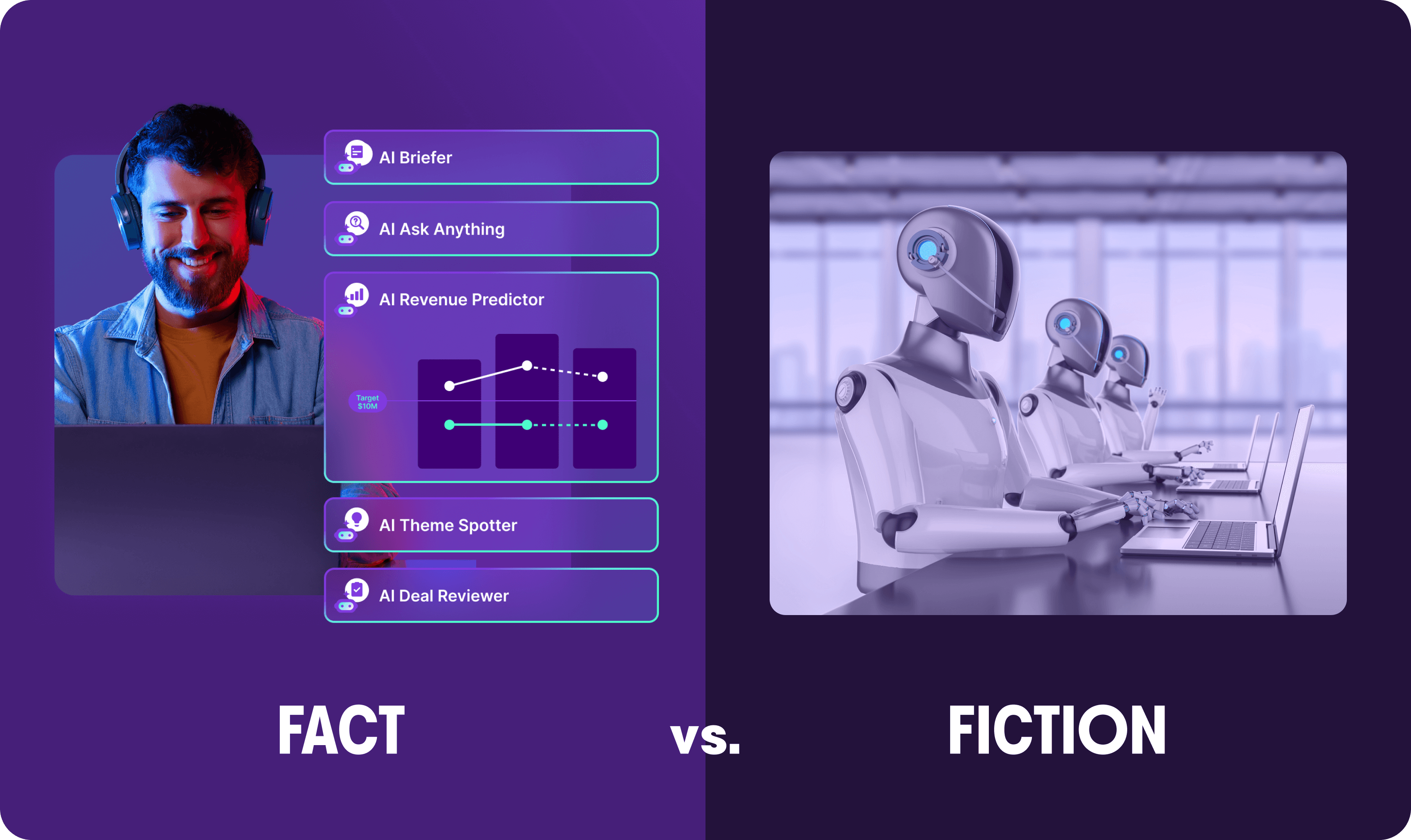Sales strategies
How selling to decision makers influences win rates

Devin Reed
Content Author
Published on: December 10, 2020
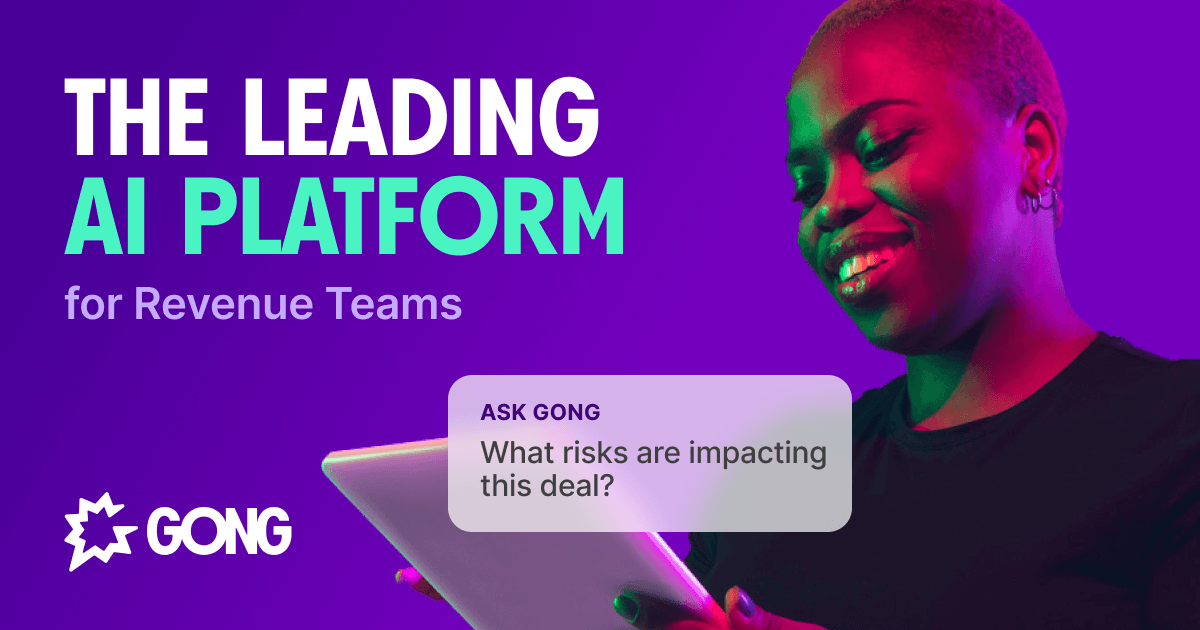
This article is part of the Gong Labs series, where I publish findings from our data research team. We analyze sales conversations and deals using AI, then the results to help you win more deals. Follow me to read upcoming research.
Look at your pipeline. How many DMs do you have?
No, not direct messages.
I’m talking about Decision Makers. DMs.
If you’ve been in sales for longer than 30 seconds, you’re probably been told, Youhave to get to the decision maker!
*Nods head in obvious agreement.*
Sales leaders have done their best to drill the importance of “selling to power” in every team pipeline review. But it’s a lesson some sellers only learn through error.
You’ve heard all of these before:
- SDRs trying to break into an account? Gotta’ get to the DM.
- AEs want to forecast a deal? Gotta’ get to the DM.
- Sales leaders in every one-on-one? You guessed it.
You’ve probably asked yourself, “ What if I just can’t get the DM on a call? How important is it really?”
Because let’s be honest, if getting DMs on calls was easy, your win rates would be higher than Slack’s recent purchase price (congrats y’all!).
There are times when, despite your best efforts, you simply cannot not get a DM on the line.
As we head into Q4 and the end of 2020 (thank god), we analyzed how selling to DMs impacts your success.
Here’s how selling to—or neglecting—DMs affects your win rates.
Ignore at your own risk.
Sidebar: About Gong Labs
Before we dive into some next-level number crunching, here’s a quick explanation of how we get our data at Gong Labs.
We analyze (anonymized) B2B sales interactions from our product users, including everything captured by Gong’s Revenue Intelligence platform: web conference meetings, phone calls, and emails. Then we analyze how seller and buyer actions impact success rates.

For this post, we analyzed 9,056 opportunities and looked at how DMs’ involvement in deals impacted win rates. DM was defined as having a title of VP, CXO, or Managing Director.
And now, back to our regularly scheduled DM-ing.
(PS: Want to skip ahead? This 9-slide deck will add some serious horsepower to your sales proposals and get the green light from DMs).

Your deal depends on getting to power (The stats are crazy.)
Just to be sure, we analyzed 9,056 sales opportunities to see how win rates were affected when DMs were missing from deals (from web conference meetings, specifically).
Deals that don’t involve DMs are 80% less likely to close:
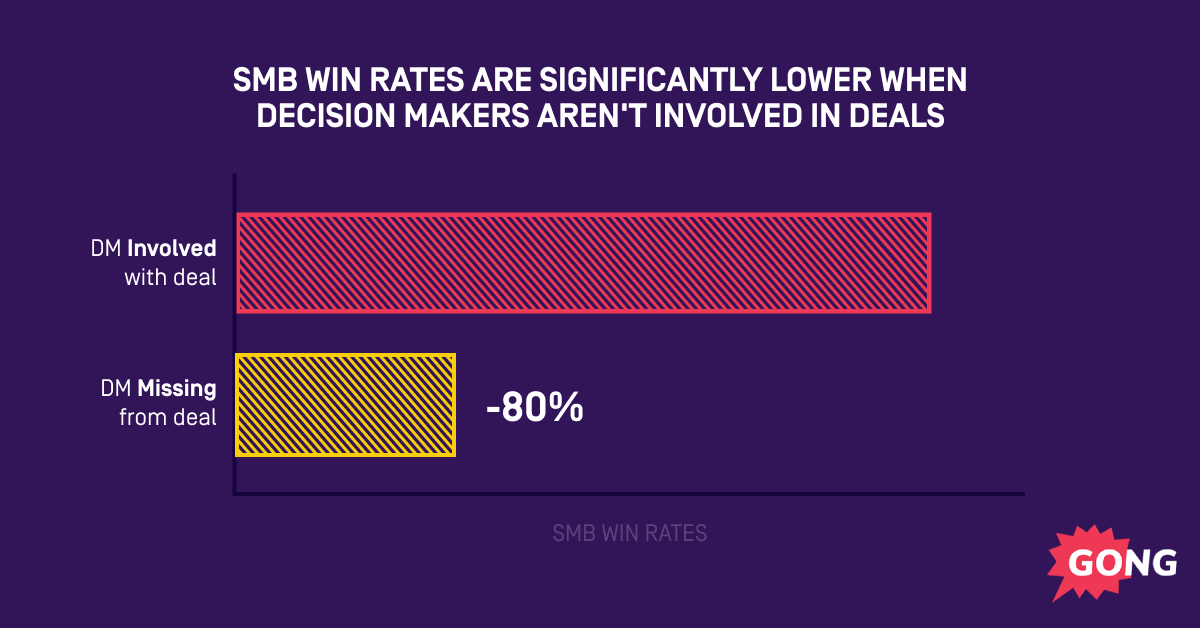
If your sales instincts were screaming “ Obviously you need a DM involved!” – you’ve been validated.
Give your gut a high five.
And maybe forward this to folks on your team who need to see it. (You know who they are.)
For those of you who sell larger deals with longer sales cycles, there’s an even bigger stat waiting on the other side of this section. Go on. Check it out…
Enterprise deals rely on DMs
When we analyzed enterprise deals—defined here as sales cycles longer than 90 days and deals of $100k+—the delta was even bigger. Enterprise deals are 233% less likely to close if the DM isn’t involved: (I wouldn’t blame you if you wanted to read that line again.)
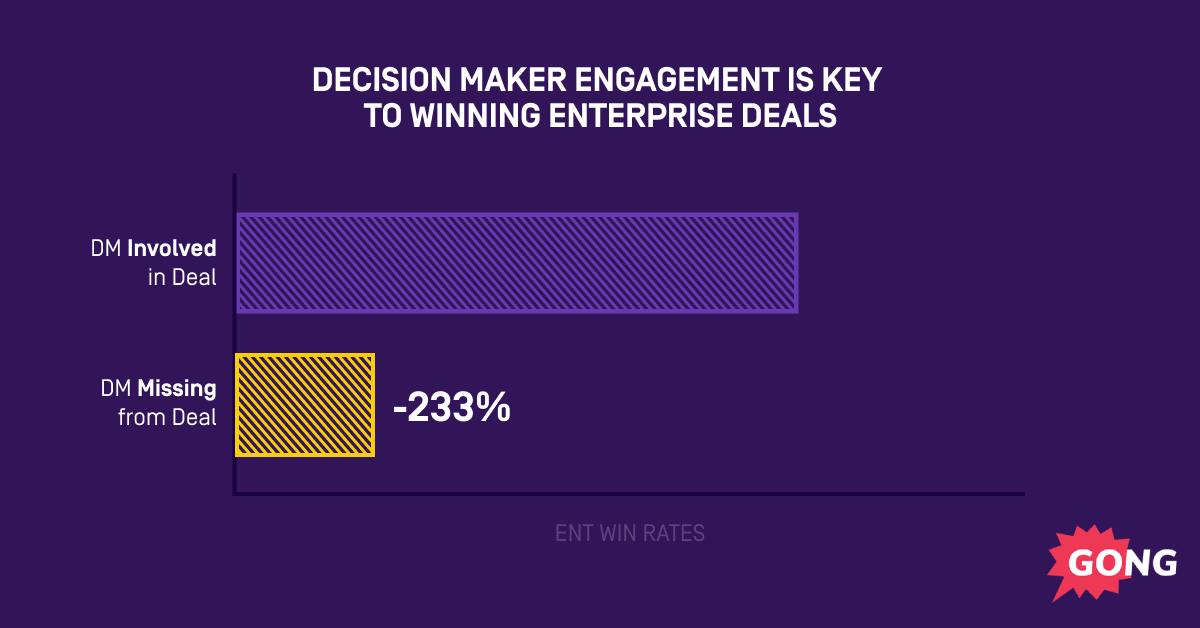
That’s such a big dip that you can safely say it’s virtually impossible to close enterprise deals without a DM directly involved.
That huge drop off is what I call a data cliff.
And enterprise deals that don’t involve DMs drive right off it (RIP).
At this point, everyone knows how critical DM involvement is to deals, especially complex ones. But most sales leaders still lack visibility into whether DMs are involved in their deals. You might think they are. But that’s different from knowing they are.
Imagine what this level of visibility would do for your sales execution:
Sales reps could prioritize at-risk accounts and get to power.
Front-line managers could coach better and create actions plans.
And senior leaders could forecast with confidence and accuracy.
It’s win-win-win.
And software like Deal Intelligence can give you those insights and more.
It’s also critical that you peel back another layer to answer this important question:
How involved should DMs be?
Should they run the deal, or is less more?
The answer might surprise you.
Avoid DM “deal fatigue”
You’ve probably heard of discovery fatigue.
It’s when buyers are tired—nay, exhausted —from answering too many questions during a discovery call.
They get irritable. Then they lose interest. And both are bad for closing deals.
DMs? They have even less patience. (More on this in our previous post here.)
But here’s the thing: they can get deal fatigue too.
DM involvement in your deal actually has a diminishing return. (That’s true for both SMBs and enterprise deals.)
It can be heard in the form of “You’re making it hard to buy” late in a sales cycle.
This is the result of deal fatigue. Your DM feels they’ve invested too much time into your deal, and they don’t see an equal or greater return around the bend.
So they give up.
Getting them to respond to your emails becomes challenging. And getting them back into a meeting? Forget about it. And now you’re chasing them—giving you deal fatigue.
When we looked at the percentage of calls that involve DMs and the correlation with win rates, the data shows that sometimes less is more:
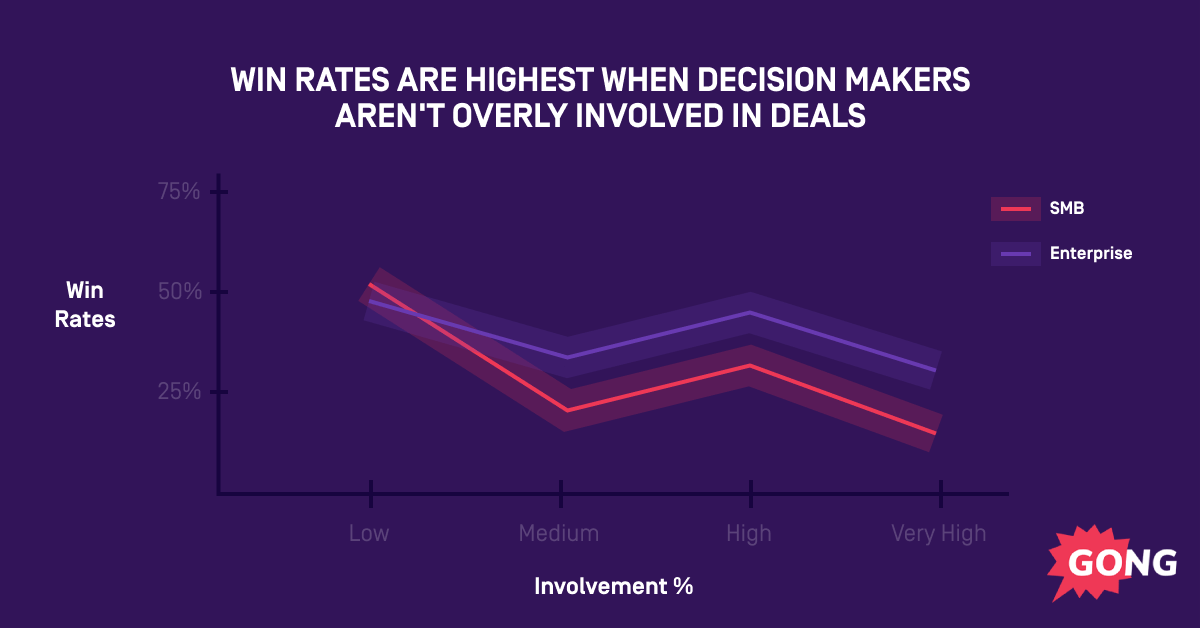
The most interesting take away here is that you don’t need a DM to run the entire deal.
In fact, win rates are highest when they play the role of the approver as opposed to the evaluator.
The approver is the person who has the final say when it comes to approving a purchase. They may be more or less invested in the actual project, but if it impacts their department or goals, they’ll probably have a criteria they use to approve or pass on the deal.
The evaluator assesses the purchase from an operational perspective as is much more involved in the deal. Their criteria often includes how the decision will impact the company and themselves personally. They look for what can go wrong and what is needed to make it successful.
What’s interesting is that the lowest win rates happen when a DM is too involved. They get deal fatigue and your deal goes downhill (or completely dark).
Getting a DM involved is crucial for deal success, but don’t over complicate your deal by trying to get them involved in every meeting.
Rather, include them in one or two conversations about what matters most to them.
Because it’s what you cover in those calls that really matters.
Here’s what DMs care about
Here’s a snapshot of a real calendar from a C-level exec at Gong:
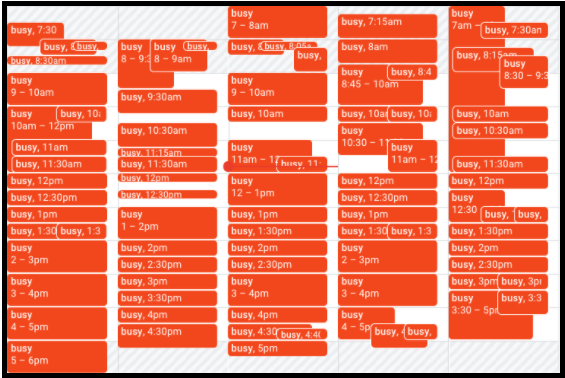
Why am I sharing this? To remind you that finding even “15 minutes to chat” is a tall order when it comes to selling to senior leaders.
So when you get that coveted time, don’t waste it.
Focus on what they care about most so they can give your deal the green light.
Be prepared to address three questions that are top of mind for DMs:
- How does this deal affect my strategic goals?
- What’s the time to value?
- Who is going to own this?
There are other topics that matter too, and they will vary from person to person. But for the majority of DMs, those three are top of mind when making a decision.
And if your DM doesn’t care about these things, you might be talking to the wrong person…
Use this in your next DM meeting
Prepping for meetings with DMs is hard.
Persuading them to approve your deal is even tougher.
There are plenty of places to slip up when presenting to them.
Walk into your next closing call with a razor-sharp proposal template that gets you to yes faster than you can hit closed-won.
Happy holidays, my friend. Here’s a free sales proposal template you can use to close your Q4 pipeline.
It covers everything DMs care about, and nothing they don’t.
It even walks you through how to fill in the template so you can wrap up those proposals in record time (then break revenue records).
Download your free Sales Proposal Template here.


Content Author
Devin Reed is a leading content strategist and former sales professional. After starting his career in sales at companies that include Eventbrite, Devin joined Gong as one of their earliest sales hires. He later transitioned into content strategy, where he played a pivotal role in growing Gong’s LinkedIn following and establishing the company as a top B2B brand. He is also the founder of "The Reeder," a marketing consulting and media company, focused on content strategy for B2B marketing and sales teams. He now advises startups like TestBox and UserEvidence while serving as a Limited Partner at Stage 2 Capital.
Discover more from Gong
Check out the latest product information, executive insights, and selling tips and tricks, all on the Gong blog.
